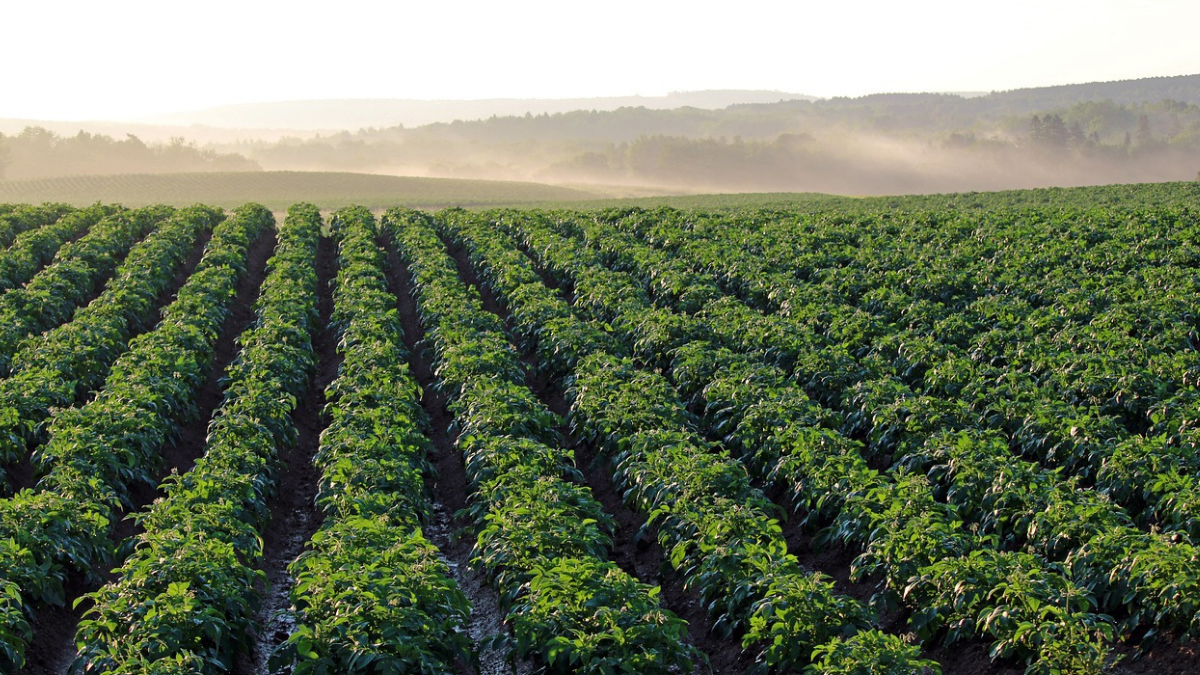“More than 60% of Africa’s working population is engaged in agriculture, and the soil across most of the continent is rich and fertile.”
– African Development Bank.
Africa is often seen as the next big player in global agriculture, and for a good reason—65% of the world’s uncultivated arable land lies within its borders, according to reports from African Development Bank. But despite this, the continent has struggled with agricultural productivity for decades. Challenges such as low yields, unpredictable climate conditions, poor infrastructure, and limited market access have made it difficult for farmers to keep pace with global demand.
So, how can Africa overcome these obstacles? The answer might just lie in AgricTech—the innovative application of technology to agriculture. Across the continent, startups and entrepreneurs are finding ways to use cutting-edge tech to tackle age-old problems, sparking an agricultural revolution that could change the future of Africa’s food systems.
Why is AgricTech Such a Game Changer?
What makes AgricTech so revolutionary is its ability to solve key problems at the root of Africa’s agricultural struggles. With precision farming, for example, farmers can now use drones, sensors, and satellite technology to monitor their crops more effectively. These tools allow them to apply water, fertilizers, and pesticides precisely where they’re needed, cutting down on waste and maximizing yield.
But it’s not just about improving productivity. AgricTech is also about providing access—access to markets, access to financial services, and access to critical data that farmers need to make informed decisions. This is where mobile platforms and Fintech come into play. In a continent where millions of farmers don’t have access to traditional banking, these innovations allow them to participate fully in the market, often for the first time.
Mobile Platforms is now the New Lifeline for Farmers
Let’s think about this for a moment: What if every farmer in Africa had access to real-time market prices, weather forecasts, and agricultural advice—all through their mobile phone? Well, that’s the ground we’re currently standing on. Companies like Esoko in Ghana and Hello Tractor in Nigeria are putting critical information at farmers’ fingertips, empowering them to make smarter decisions and, ultimately, improve their livelihoods.
Take Hello Tractor as an example. This mobile platform connects farmers with tractor owners, allowing them to rent tractors when they need them most. This means farmers no longer have to struggle with labor-intensive tasks that slow down productivity. With just a few taps on their phones, they can access the tools they need to boost output.
It’s not just mobile technology that’s making waves. Let’s take a look at other powerful innovations driving the AgricTech revolution.
The Role of Artificial Intelligence and Data Analytics
Africa is beginning to embrace artificial intelligence (AI) and data analytics in agriculture, and the results are promising. AI-powered platforms help farmers predict weather patterns, identify disease outbreaks, and forecast market trends. This ability to anticipate challenges before they arise is critical for improving resilience in the face of climate change.
In South Africa, companies like Aerobotics are using drones and AI to help farmers monitor crop health in real time. By analyzing drone footage, Aerobotics provides detailed insights that allow farmers to make quick adjustments to improve yield and reduce crop losses due to pests or diseases. This level of precision is a game-changer, especially in high-value crop sectors like fruit and horticulture.
The Power of Blockchain in Bringing Transparency and Trust to Agriculture
One of the biggest challenges for African farmers, especially those involved in exports, is proving the authenticity and quality of their products. This is where blockchain technology comes in. By creating transparent, tamper-proof records, blockchain is helping African farmers trace the origins of their products, ensuring they meet international standards.
Imagine being able to track the journey of a coffee bean from a farm in Ethiopia to a café in Europe. That’s the power of blockchain. It not only builds trust with consumers but also helps farmers get fairer prices for their goods by cutting out middlemen. In sectors where fraud and misrepresentation are rampant, blockchain ensures transparency at every step of the supply chain.
What’s Working Across Africa?
Let’s look at some real-world examples of AgricTech success stories that are changing the landscape of African agriculture.
Take Lori Systems, a logistics company operating in East and West Africa. Lori is revolutionizing how goods—including agricultural products—are transported across the continent. By digitizing the logistics process and connecting farmers to freight options, Lori is reducing transportation costs and ensuring that goods reach markets faster. This improved access to logistics enables farmers to sell their produce in a more timely and cost-effective manner, reducing post-harvest losses and enhancing profitability.
In Nigeria, Farmcrowdy has redefined farm financing by creating an online platform that allows individuals to sponsor farms. Investors earn returns when the farm yields are sold, and farmers get access to the capital they need to expand. This model has helped support thousands of smallholder farmers, boosting production of essential crops like maize, rice, and cassava.
How AgricTech is Boosting Food Security
Africa is growing fast. By 2050, the continent’s population is expected to hit 2.5 billion, which means demand for food will skyrocket. AgricTech is key to meeting this demand. By increasing yields and making farming more efficient, these technologies help produce more food with fewer resources, a critical necessity in a world grappling with climate change and environmental degradation.
More food security means less reliance on expensive food imports and greater resilience to external shocks. For instance, during the COVID-19 pandemic, many African countries faced food shortages due to disrupted global supply chains. AgricTech could make Africa self-sufficient in food production, helping countries weather future crises.
Beyond improving food security, the AgricTech revolution is also boosting rural economies. When farmers have access to better tools, markets, and information, they earn more. And when farmers earn more, they invest in their communities. More income means better education, healthcare, and opportunities for future generations.
In Kenya, mobile platforms have not only connected farmers to markets but also helped them access credit and insurance. This gives farmers the confidence to invest in better seeds, fertilizers, and equipment, further increasing their productivity. The economic ripple effect of these innovations can be seen across rural Africa.
Is There Still Something Holding AgricTech Back?
With all this promise, you might wonder: Why hasn’t AgricTech completely transformed African agriculture yet? The truth is, there are still significant challenges that need to be addressed. Infrastructure deficits, such as limited internet connectivity, poor road networks, and unreliable electricity, are a major obstacle to widespread adoption.
Then there’s the issue of digital literacy. Many smallholder farmers lack the knowledge and training needed to use these technologies effectively. And while AgricTech solutions are often designed to be user-friendly, scaling them requires more investment in educating farmers.
Cost is another hurdle. Even though startups like Farmcrowdy and Hello Tractor are making technology more accessible, many farmers still struggle with the upfront costs. Affordable financing solutions, especially in the form of microloans or cooperative lending, will be essential to drive widespread adoption.
The Role of Governments and Investors
It’s clear that collaboration between startups, investors, and governments is vital to AgricTech’s success. Startups are driving innovation, but they need funding and support to scale their solutions. Governments must create an enabling environment for AgricTech by investing in infrastructure and providing tax incentives for tech companies.
Investors, especially those with an eye on social impact, play a crucial role as well. By providing the capital needed for AgricTech startups to grow, they’re not just seeking financial returns but also helping to address one of the most pressing issues of our time: global food security.
What Does the Future Hold for AgricTech in Africa?
As we look to the future, several exciting trends are emerging in AgricTech. Vertical farming, climate-smart agriculture, and regenerative farming are gaining traction as sustainable solutions to Africa’s agricultural challenges.
Moreover, we’re starting to see the rise of carbon farming, where farmers are paid to capture carbon through sustainable farming practices. This not only helps combat climate change but also provides a new source of income for farmers.
With the right investments, policies, and technological advancements, Africa’s AgricTech sector could be the key to unlocking a brighter, more prosperous future. The agricultural transformation underway could turn Africa into the world’s next breadbasket, feeding billions both within and beyond its borders.
In conclusion, The AgricTech revolution is no longer a distant dream—it’s happening now. Africa’s path to agricultural transformation lies in embracing technology, fostering innovation, and scaling up what works.









Leave feedback about this